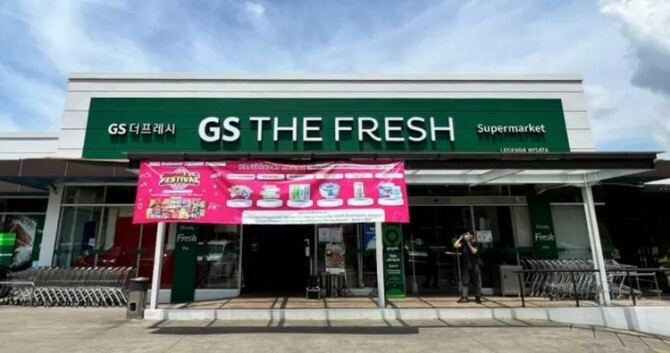
Jakarta, Indonesia – South Korean supermarket chain GS Supermarket is set to completely cease its operations in Indonesia by the end of May 2025, marking the departure of another international player from the competitive Indonesian retail landscape. The news, which initially surfaced on social media platform X (formerly Twitter), has since been confirmed by the company's official Indonesian Instagram account, leaving customers and employees in a state of uncertainty.
According to reports from Indonesian media outlet SAWITKU, the closure will affect all GS Supermarket locations across the archipelago. A social media user first brought the impending shutdown to public attention, recounting their experience at the Cibubur Legend of Tourism branch where significant discounts, dwindling stock, and the absence of some staff members hinted at the store's imminent closure.
GS Supermarket Indonesia subsequently issued a statement on its Instagram page (@gssupermarketid) advising customers to utilize their loyalty points and take advantage of discounts before the May 31, 2025 deadline, after which all accumulated points will be forfeited. This official communication served as confirmation of the company's decision to exit the Indonesian market.
The withdrawal is expected to have a significant impact on the hundreds of individuals employed by GS Supermarket in Indonesia. As of now, there has been no official announcement regarding potential job placements or compensation packages for the affected employees, raising concerns about their immediate future.
While GS Supermarket has been present in Indonesia for several years, the company has remained tight-lipped about the specific reasons behind its decision to pull out. The lack of transparency has fueled speculation regarding the factors that may have contributed to this strategic shift. Potential reasons could range from intense competition within the Indonesian retail sector to a broader restructuring of GS Retail's international business strategy, or perhaps specific challenges encountered within the Indonesian market itself.
The Indonesian supermarket industry is characterized by a mix of domestic and international players, all vying for a share of the country's large and increasingly affluent consumer base. Local giants such as Alfamart and Indomaret boast extensive networks of convenience stores and supermarkets, enjoying strong brand recognition and deep market penetration. Additionally, other international retailers, including hypermarket chains and premium supermarkets, also maintain a presence, creating a highly competitive environment.
Several factors could have made it challenging for GS Supermarket to thrive in this landscape. Navigating the complexities of the Indonesian regulatory environment, adapting to local consumer preferences, and managing operational costs across a geographically dispersed archipelago can present significant hurdles for foreign retailers. Moreover, the rise of e-commerce and online grocery delivery services has further intensified competition, requiring traditional brick-and-mortar retailers to adapt their business models.
It is also possible that GS Retail, the parent company of GS Supermarket, is re-evaluating its overseas investments and focusing on core markets or more promising ventures elsewhere. Many international retailers periodically review their global footprint and make strategic decisions to optimize their resources and profitability.
The departure of GS Supermarket marks the end of another chapter for Korean retail in Indonesia. While K-pop and K-dramas have enjoyed immense popularity in the country, translating that cultural appeal into sustained success in the retail sector can be a complex undertaking. Other Korean retail brands have also faced challenges in the Indonesian market, highlighting the need for a deep understanding of local market dynamics and consumer behavior.
As GS Supermarket prepares to shutter its Indonesian operations by May 31st, the focus will likely shift to the fate of its employees and the future of the retail spaces it currently occupies. The company's silence on the reasons for its withdrawal leaves a void that will likely be filled by market speculation and analysis in the coming weeks. The Indonesian retail landscape will continue to evolve, with both domestic and international players vying for dominance in this dynamic and significant Southeast Asian market. The exit of GS Supermarket serves as a reminder of the challenges and complexities inherent in navigating the diverse and competitive Indonesian retail arena.
[Copyright (c) Global Economic Times. All Rights Reserved.]






























